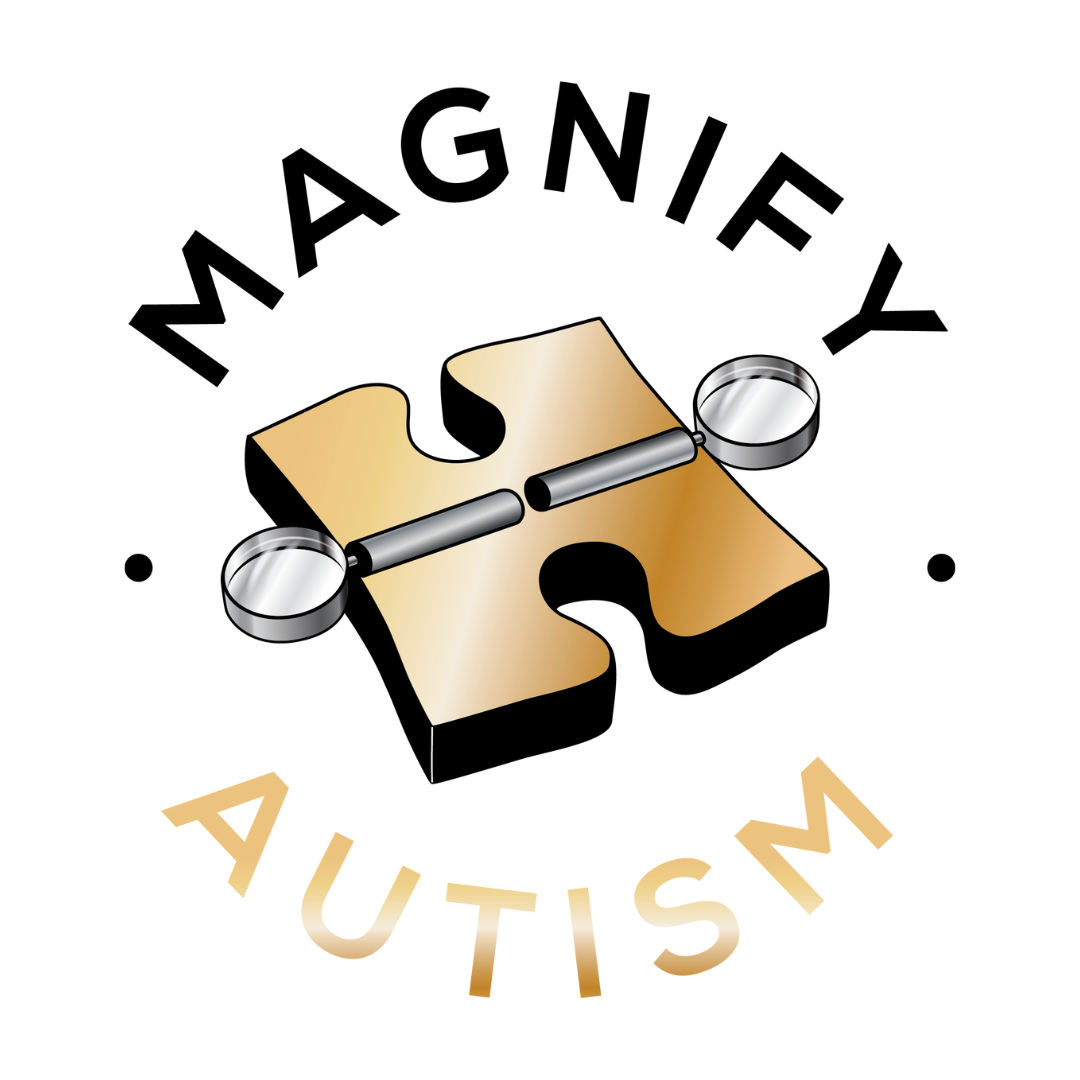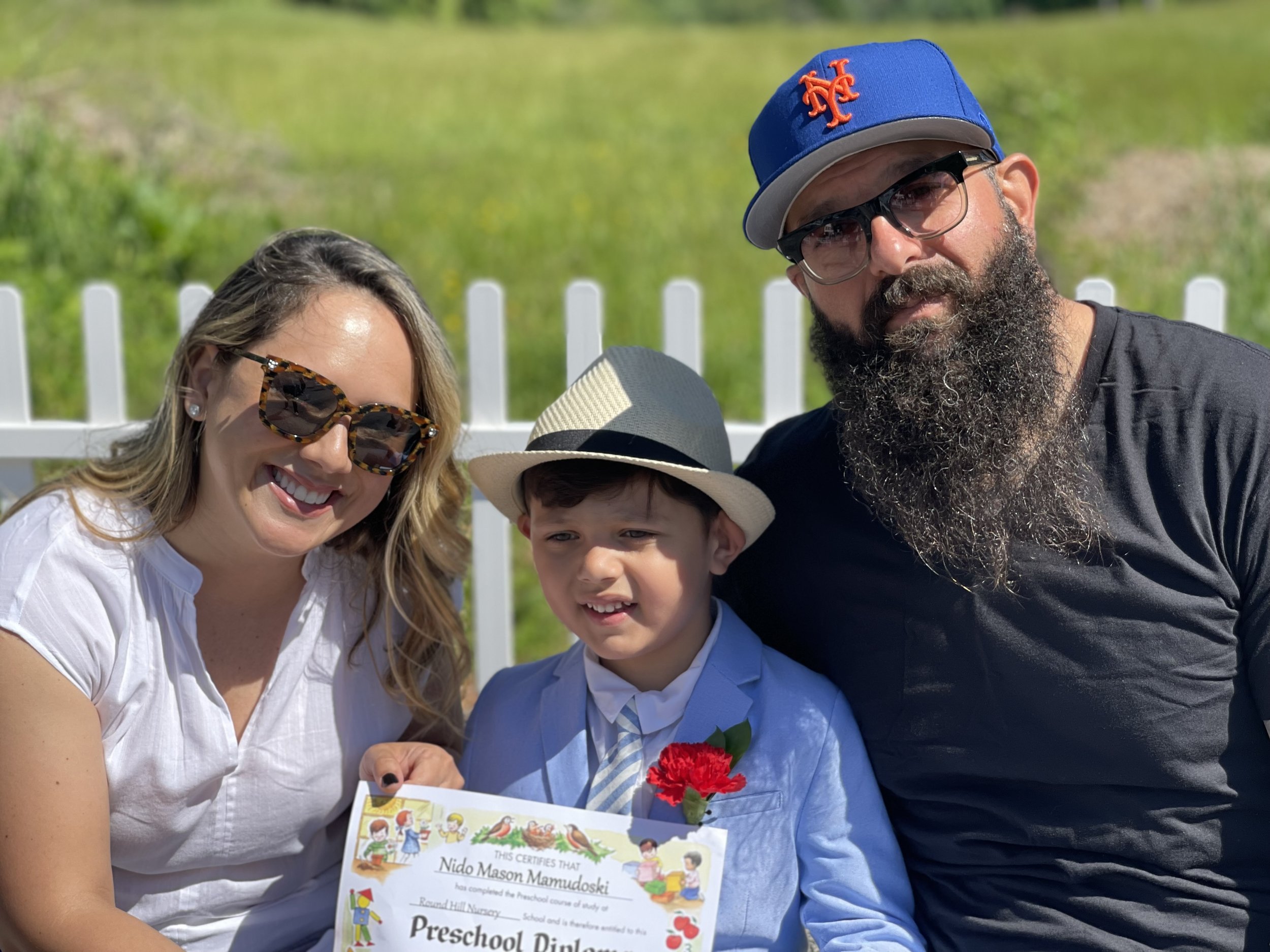Our Story
Why we started Magnify Autism
Conceiving our son wasn’t easy. We went through a lot of heartbreak and sadness before we were finally blessed with a pregnancy that was strong. I, like many other mothers, did everything to make sure that this pregnancy was strong and healthy. I ate right, exercised, eliminated caffeine, and didn’t dye my hair, paint my nails, or use bleach when cleaning the house. Pregnancy was a breeze.
When my son was born, life came back into our house. There is nothing more precious in the world than a new life, especially one that you created. I envisioned his whole life from the day he was born. He would play sports, read, laugh, cry, enjoy school, make friends, go to college, get a good job, find love, and get married. I couldn’t wait for him to be able to speak so that we could have long conversations about anything he wanted. He would laugh at mom’s silly jokes and explain to his father and brothers why mom is so funny.
I was teaching First Grade in the Bronx when my son was born. I decided I wouldn’t go back to work until he was at least one year old. Being able to stay home with him that first year was tough, but a blessing. I was there for all of his milestones. Everything was right on track.
After he turned one, I noticed that he wasn’t on time with his social milestones. I didn’t see the joint attention, finger pointing, or waving goodbye, so I began to panic. I questioned autism but quickly convinced myself otherwise because no one in my or my husband’s family has been diagnosed to be on the spectrum.
I made the decision to not go back to work just yet and help him reach his social milestones. I would struggle to get him to answer to his name and to wave bye. I spent nights researching on google. I went onto AutismSpeaks.org and saw a link for a quiz on the risk of autism. Late at night, I would take the quizzes and my son would score at the 90% at risk for being diagnosed with autism. This went on for weeks. I would cry at night, not sharing the news with my husband.
I googled everything there was to know about autism and a lot of what I found scared me. When speaking to my pediatrician, he would tell me not to worry and give it time. According to him, milestones are sometimes met a little later, which is usually the case for boys.
I listened to him and prayed every week that my son would begin to speak, point at something, wave goodbye, or have joint attention with me. Unfortunately, it didn’t happen.
“You will never have exact answers with Autism. You can only have your answers. Let your child be the one to give you that. There is no deadline when you believe in your child.” - Johanna Escobar

Early Intervention
N
I
D
O
Prior to my son’s 18th-month checkup, his pediatrician sent two questionnaires to fill out. One of them was the Modified Checklist for Autism in Toddlers (MCHAT), the toddler pre-screening for autism. I answered no to all except one question, my world came crashing down. It’s one thing to get news about yourself as an adult, but to realize that life was going to change for your precious child is another.
I called my pediatrician and told him that I was worried, that I needed to do something. He then gave me a phone number for our area’s local Early Intervention program. I called them right away and began the process of having my son evaluated.
Two therapists came to the house to evaluate him. As they worked, my husband and I held our breaths. They told us he had developmental delays but didn’t think he had autism so we shouldn’t worry. At that moment, we were relieved. We had a glimmer of hope.
They also suggested speech, occupational therapy, and special instruction, each at two times per week. It was the job of our case manager to make sure these services were in place within 30 days. They suggested that we give my son 6 months of therapy and we would see a difference.
Magnify Autism Featured on News 12
The Reality of Early Intervention
The 30 days came and went, and we were finally able to get a special educator. The special educator rescheduled a million times and always canceled at the last minute. I would even rearrange my schedule at her convenience and she would still cancel. When I complained about this, her boss told me special educators were allowed to have 10 sick days in a year. In 60 days, the educator saw my son a total of 5 times when she was supposed to have seen him 6 times a week.
Early Intervention failed at finding us a speech therapist, apparently there were none available. We did have a lady come to our house to give my son occupational therapy. However, she only sat on the floor, barely moved, and called him buddy the whole time—which is not my son’s name.
My husband and I aren’t experts in the best practices for developmental delays. But we knew that this lack of professionalism from a state funded program didn’t seem right.
Frustrated, we decided to contact The Center for Autism and the Developing Brain (CADB). We needed an answer. They work with children on the spectrum and evaluate children as young as 18 months. At 20 months old, my son was diagnosed with autism. We had the answer that we had been seeking and it broke our hearts. Not for us, but for what life could be like for a child with Special Needs. What I had envisioned for his future quickly changed into what little I had known about children on the spectrum. To speak honestly, it was the dark world of a child with a label. This is where we knew that he had to get the best therapy possible in order to give him a fair shot in the world.
The Center for Autism and the Developing Brain did work with Early Intervention but had no slot for him until the upcoming weeks. However, we were now able to get Applied Behavioral Analysis (ABA) therapy from the state at no cost. Not knowing anything about behavioral therapy, we trusted that maybe Early Intervention would be able to provide a therapist to meet his needs now that he had a diagnosis.
Again, we were provided with ABA therapists that would cancel, show up late, or not do much. At this point my son still wasn’t speaking and my husband and I were desperate for a speech therapist, which after 90 days in the system, he still wasn’t appointed one.
Luckily, when he began a toddler development group at CADB he was given speech therapy. While there, I discovered that there were private speech therapists that worked with prompting children with speech delays. We looked into it and shortly began paying for private speech therapy sessions.
It was through private Speech Therapy that we heard of The Waverly Group in Greenwich. Frustrated with the lack of professionalism and consistency of EI, we made the decision to go private with all of his services.
We began paying out of pocket for private therapy and eliminated what had been provided by Early Intervention. We came to this choice because we could no longer count on the state-funded program where the employees were unreliable. Which is a shame because parents rely on the knowledge of the therapists to help them shape their children’s future. We read somewhere that children with autism can thrive if given the proper therapy. Unfortunately, that therapy isn’t cheap. Most families will spend over $70,000 a year for private services.

Event: NYPD Hispanic Society
Present Day
The pandemic changed our lives. Before COVID, Nido had 12 hour days. I would drive him over 300 miles a week to and from school, therapy, and speech. He attended a regular nursery school with his BCBA.
During quarantine, we were forced to do therapies over ZOOM. It was a difficult time because mom became the facilitator of his program instead of just being mom. However, close to his 5th birthday, Nido finally began talking! I cannot tell you how it changed our life. It felt like we waited a lifetime to hear his voice.
Today, at 6 years old, my son is the hardest working person I know. He attends Parkway Elementary School. He has friends, he loves to sing and dance, he loves academics, and loves to make jokes.
Our decision to start Magnify Autism was to financially help families with children on the spectrum. We are fortunate to be able to do this for our child, it is our dream to help other children as well.







